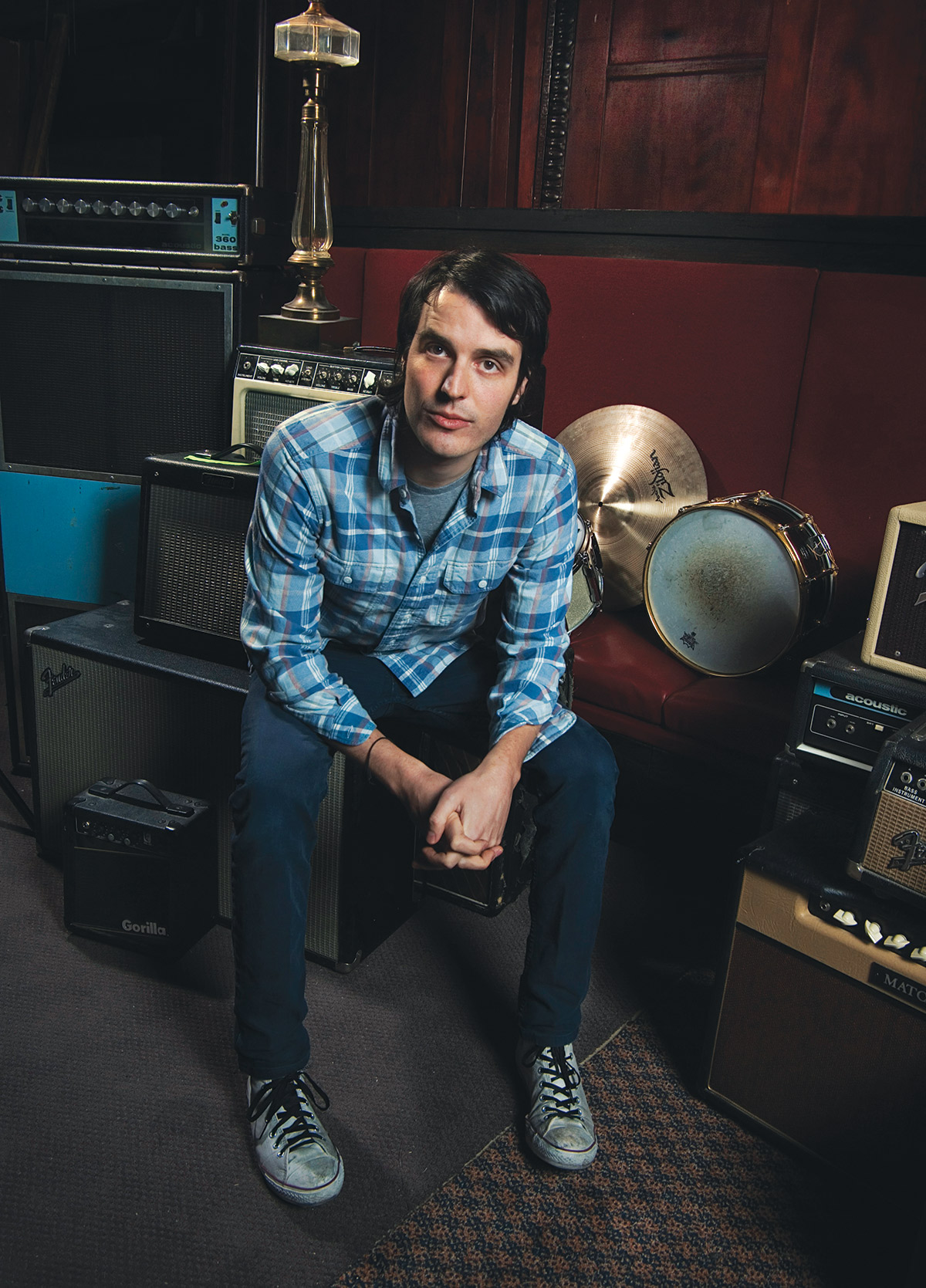The Temple of Tune
The coolest recording studio in Boston doesn’t have windows. No sign hangs out front. The building sits on the noisy main drag of a neighborhood that’s safe enough during the day, but turns a little rough as darkness falls.
The protocol around the studio is simple, and well established: The address is never publicized. Advertising is out of the question. All business comes by word of mouth.
Such practices are not usually the key to entrepreneurial success, but in the two years since it opened, the so-called 1867 Recording Studio has become a kind of mecca for dozens of local and national bands, groups that fork out large sums of cash for the opportunity to make music there. “You immediately feel like something epic or magical is going to happen when you enter that space,” says Aurore Ounjian of the Boston band Mean Creek. “Who knew a place like that existed around here?”
Virtually nobody—and that’s the whole idea. It was, after all, unhappy neighbors who had gotten Chris McLaughlin, the studio’s founder and recording engineer, booted from his previous recording space. Curiously, the secrecy has only helped to swell his client list. You could say that it’s a bit like Fight Club: The first thing you learn about 1867 is that you don’t talk about 1867.
McLaughlin never set out to run his own studio, clandestine or otherwise. He wanted to be a rock star. In 2006, two years after he graduated from Boston College with a degree in physics, his band, Aberdeen City, was signed to a multi-album contract with Sony Music. An early single, “God Is Going to Get Sick of Me,” got some traction, and the band toured successfully before things began to fizzle. “I was the last one to learn we were going to get dropped,” McLaughlin says. “And I remember asking, ‘Well, can we keep the tour van? It has WiFi and everything!’ They said we could keep the tour van. And that was that.”
Around the same time, after running afoul of a noise-sensitive neighbor, McLaughlin began casting about for a new place to play. One of his first stops was a hulking stone building near his apartment. In the early 1900s, the Masons maintained the structure as a temple. They covered the walls with hieroglyphs and erected a backlit altar, which now lies shattered and dark at the west end of the main hall. More recently, it was used as a movie theater—when McLaughlin first had a look, an old red carpet still covered most of the floor.
“I just thought, Oh my God, this place is perfect,” McLaughlin remembers. He was really only in the market for a practice space, but as he paced beneath the gilded moldings, which had been collecting dust for decades, he started thinking. Like McLaughlin, many of his friends were looking for a different kind of recording space, something that made the process an experience as much as a work project. Bands would come in droves to play in a place like this, McLaughlin predicted.
These days the 1867 Recording Studio—the name is a nod to the building’s age—is a professional producer’s paradise. A dozen keyboards stretch across the counter spaces, and along a dusty pew McLaughlin displays his favorite electric guitars. But amid the amp stacks and cord coils, he’s left room for remnants of the Masons’ tenancy: programs from a 1913 meeting, skulls and crossbones painted onto the towering walls, engraved scarabs fixed to moldings. The vibe is equal parts Dan Brown and Pavement.
“There is such an air of mystery to the building that it was unlike any recording experience I’ve ever had,” says Kosuke Kasza. Earlier this year, Kasza recorded a new LP at 1867; he is one of several New Yorkers who regularly travel north to work with McLaughlin. Some musicians come for the sheer novelty of the experience—a chance to lay down tracks in the cavernous chamber where a shadowy society once held sway. Others are there simply because they believe McLaughlin will produce a sound that other engineers can’t. McLaughlin has an “amazing ear,” Ounjian says. “We’ve all recorded in over a dozen studios in and out of Boston. This has to be the best-sounding record we’ve done.”
Andy Guthrie, codirector of the popular Band in Boston podcast, says McLaughlin’s passion rubs off on his clients. “Recording studios are usually these off-limits places, like the Taj Mahal or something. Maybe you’ll get in there for a few million bucks,” he says. “What Chris has done is make the whole thing attainable, and accessible, and fun. He’s made it interesting.”
On a sharply cold day, McLaughlin sits on a bench at 1867, toying with the fretboard of a beat-up Univox guitar, and struggling to stay warm; after a while, he pulls a jacket tighter around his shoulders. McLaughlin spends a lot of time in 1867. He is there for the marathon recording sessions, but he’s also there when the building is empty—when it’s just him, and the amp stacks, and the keyboards, and the ghosts of all the people who have gone before.
“It’s a good place to think,” he says. “It’s weird—in a lot of ways this building has become a kind of home.”
